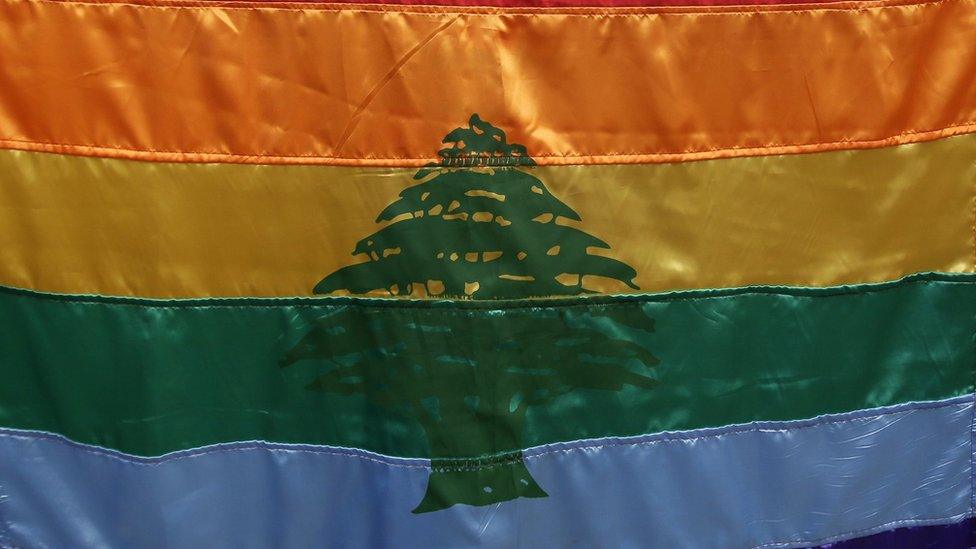Beirut Pride: Organisers say clerics forced cancellation of opening concert
- Published

Lebanon is considered more tolerant than most other Arab countries
The opening concert of Beirut Pride has been cancelled because of pressure from religious institutions and threats of violence, organisers say.
Clerics had complained to the Lebanese authorities, linking the festival to "the promotion of same-sex marriage and associating it with debauchery and immorality", a statement said.
The opening evening will now be suspended until further notice.
Last year, some events were cancelled after an organiser was arrested.
Lebanon is seen as more tolerant than most other Arab countries, but lesbian, gay, bisexual and transgender people say they still face harassment and have no rights.
This year's nine-day Beirut Pride had been scheduled to begin on Saturday night with a free concert at the Palace, a venue in the centre of the capital.
But on Wednesday night organisers announced that they had been forced to cancel the concert, external after the Palace's management was contacted by security services and "and multiple parties issued statements, threatening with violence against the theatre and against the participants".
Allow X content?
This article contains content provided by X. We ask for your permission before anything is loaded, as they may be using cookies and other technologies. You may want to read X’s cookie policy, external and privacy policy, external before accepting. To view this content choose ‘accept and continue’.
"Under pressure from the street, the management of the Palace is unable to produce the concert next Saturday," the organisers added. "We thank the performers and the Palace for their perseverance, and the opening evening of Beirut Pride 2019 is suspended until further notice."
It came after Lebanon's former chief mufti, Mohammed Rashid Qabbani, accused the organisers of violating "good morals", external.
There had also been a separate call to boycott Beirut Pride backed by several LGBT activists and members of the community. A document posted online accused the founder of the festival of failing to be transparent and inclusive, and questioned his dealings with the authorities.
"Pride has always been a community led initiative and the organiser takes decisions without including anyone," one person who asked not to be named told the BBC.
However, the person also stressed that they stood with Beirut Pride in the face of the religious institutions, adding: "The fight against religious bans is for us to fight as a community."
There was no immediate response to the allegations from Beirut Pride.
In July, a major music festival cancelled a concert by the country's best-known rock band, Mashrou' Leila - whose lead singer is openly gay - "to prevent bloodshed" after church leaders accused the group of blasphemy. And in May, Lebanon's government blocked access to the gay dating app Grindr.
LGBT people have faced prosecution in the past for violating Lebanon's penal code, which punishes "any sexual intercourse contrary to the order of nature" with up to one year in prison.
But last year, a district court of appeal issued a ruling that consensual sex between people of the same sex was not unlawful - a decision activists hailed as "ground-breaking", external.